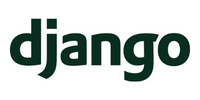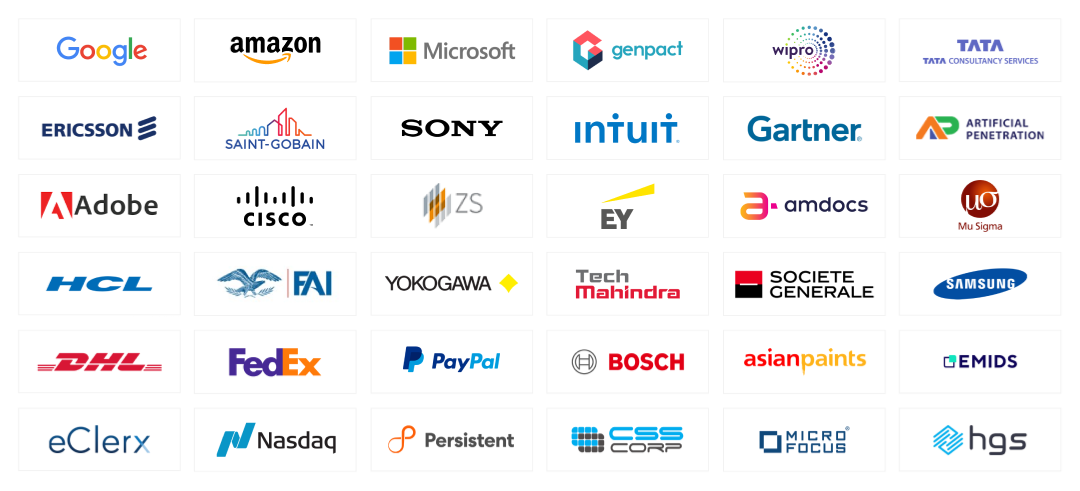Home » Full Stack Development
Full Stack Development Certification Course
Become a Full Stack Development Certified Professional with the Elearners365 Course!
- Creating user interfaces with HTML, CSS, JS
- Developing server applications with Node.js, Django
- Managing data with SQL, NoSQL
- Implementing CI/CD, ensuring server scalability
Key Highlights

40 hours of guided instruction

Certification upon completion

Hands-on projects

Flexible scheduling options

Job placement support

Ongoing support from mentors

Comprehensive curriculum

Live classes held daily
Full Stack Development Course Overview
This course encompasses frontend and backend development, database management, and DevOps practices, empowering learners with comprehensive skills for building dynamic web applications.
You will learn frontend and backend development, database management, and DevOps practices essential for building dynamic web applications.
This course is suitable for aspiring web developers, software engineers, and anyone interested in mastering both frontend and backend development skills.
Basic knowledge of programming languages like HTML, CSS, and JavaScript is recommended. Familiarity with concepts like databases and server-side scripting would be beneficial but not mandatory.
Our online course offers comprehensive training in full stack development, with hands-on projects and expert guidance. You’ll gain practical skills required for real-world development scenarios, setting you up for success in the competitive tech industry.
Full Stack Development Career Transition
Transitioning into a full stack development career involves acquiring skills in frontend and backend development, database management, and DevOps practices, often through formal education, self-study, or bootcamps, to secure roles in web development and tech-driven industries.

Average salary increase of 39%

35 LPA Highest Salary

Learn programming languages

Engage with professional networks
Skills Covered
- Frontend Development
- Backend Development
- Database Management
- Version Control
- Problem-Solving
- Communication
- Continuous Learning
- Adaptability
- Attention to Detail
Tools Coverd










Cost of Enrolling in Full Stack Development Training
Enrolling in full stack development training involves understanding the associated costs and potential benefits for informed decision-making. By evaluating expenses against expected outcomes, individuals can gauge the value of pursuing such education.
One-on-One Session
-
Individualized coaching or mentoring session
-
Personalized attention from an instructor or expert
-
Tailored guidance to address specific needs or concerns
-
Skill development through personalized assistance.
-
Effective problem-solving in a private setting
Online Classroom
-
Access to Self-Paced Learning materials
-
40 hours of one-to-one Instructor-led Training
-
Dedicated doubt resolution sessions
-
Unlimited access to multiple course batches for a lifetime
-
Job assistance provided
Full Stack Development Course Syllabus
- Live Classes
- Client-Server Architecture
- Front-End UI Frameworks
- HTML, CSS, JS and DOM
- Bootstrap, JQuery
- NPM Scripts, Angular, Flask
- Development Environment Setup, Git Setup
- Basics of Java Programming
- Data Collection
- Business Intelligence
- Data Wrangling
- Exploratory Data Analysis
- Python Lab {Pandas Adv, Tableau, Excel}
- MySQL Labs
- Additional Topic: Virtualization
- Back-End Development
- MongoDB
- Express
- AngularJs
- NodeJs
- PostgreSQL, Git, Swagger
- Searching, Sorting, SDLC,
- Software Testing Basics
- App Development using Meteor
- Distributed Architectures
- Microservices Architectures, DevOps
- Cloud Native Deployment
- Redis, Kafka, Docker, Kubernetes, AWS
- Additional Topic: Networking
- Additional Topic: Cloud
Course Enquiry
Full Stack Development Projects
Full Stack Development Certification
In this Full Stack Development Certification program, you will acquire a comprehensive skill set required to excel in the field of full stack development. The curriculum covers topics such as frontend and backend development, database management, DevOps practices, and version control systems. Through hands-on projects and practical exercises, you will develop proficiency in building dynamic web applications using cutting-edge technologies and frameworks.
To become a certified Full Stack Developer, individuals typically need to complete a recognized certification program or course in full stack development. These programs often involve engaging in coursework, hands-on projects, and assessments to demonstrate proficiency in key concepts and tools. Upon successful completion of the certification program, participants receive a certification indicating their competence as a Full Stack Developer, recognized by industry professionals and employers.
A Full Stack Developer is responsible for designing, developing, and maintaining both the frontend and backend components of web applications. Their roles and responsibilities include:
- Frontend Development: Creating user interfaces and designing responsive web layouts using HTML, CSS, and JavaScript.
- Backend Development: Building server-side applications, implementing business logic, and managing database interactions using frameworks like Node.js, Django, or Flask.
- Database Management: Designing, optimizing, and managing databases using SQL or NoSQL technologies to ensure efficient data storage and retrieval.
- Integration: Ensuring seamless integration between frontend and backend components, and integrating third-party APIs and services as needed.
- Testing and Debugging: Writing unit tests, conducting code reviews, and debugging issues to ensure the reliability and stability of the application.
- Deployment and Maintenance: Deploying applications to production servers, monitoring performance, and addressing any issues or bugs that arise in the live environment.
- Collaboration: Collaborating with cross-functional teams, including designers, product managers, and other developers, to deliver high-quality software products. Overall, Full Stack Developers play a crucial role in the entire software development lifecycle, from conceptualization and design to deployment and maintenance, ensuring the smooth functioning and success of web applications.
The validity period of a Full Stack Development Certification varies depending on the certifying body and program. Some certifications may have no expiration date, while others may require recertification after a certain period to ensure that certified professionals stay updated with the latest developments in the field. Therefore, individuals interested in obtaining a Full Stack Development Certification should review the certification provider’s policies for specific details regarding validity and recertification requirements.

Placement Target Companies

Full Stack Developer Certification Training FAQs
Full stack development refers to the practice of building both the frontend and backend components of web applications. It is important because it allows developers to create fully functional and interactive web applications that meet the needs of users and businesses alike.
Prerequisites for enrolling in a full stack development course may vary depending on the program, but generally, basic knowledge of HTML, CSS, and JavaScript is recommended. Familiarity with programming concepts and database management may also be beneficial.
A typical full stack development course covers topics such as frontend development (HTML, CSS, JavaScript), backend development (Node.js, Django, Flask), database management (SQL, NoSQL), version control (Git), and deployment practices.
Full stack development professionals have a wide range of career opportunities, including roles such as web developer, software engineer, full stack engineer, and technical lead. They can work in various industries, including technology, e-commerce, finance, healthcare, and more.
To prepare for a full stack development course, you can start by familiarizing yourself with basic programming languages and concepts. Additionally, practicing coding exercises, building projects, and staying updated with industry trends can help you maximize your learning outcomes.
During the full stack development course, students typically have access to online lectures, hands-on projects, coding exercises, discussion forums, and support from instructors and teaching assistants. Some courses may also offer mentorship programs and career guidance services.
To evaluate the quality and credibility of a full stack development course, you can consider factors such as the reputation of the training provider, the qualifications and experience of the instructors, the curriculum content and structure, student reviews and testimonials, and any industry certifications or partnerships. Additionally, you can look for courses that offer hands-on projects, real-world case studies, and opportunities for practical application of skills.
